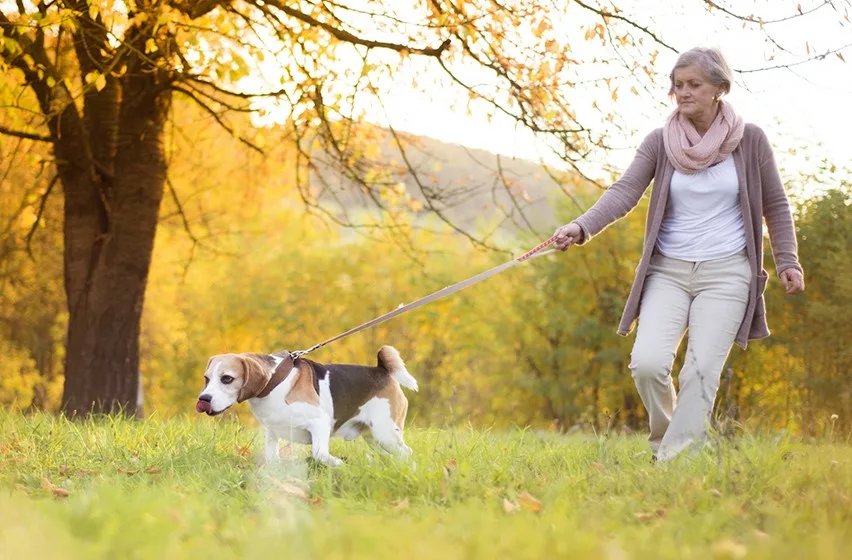
Essential Dog Training Tips for Beginners: Kickstart Your Journey!
Share
Bringing a new dog into your life is thrilling, but it also presents unique challenges, particularly for those just starting out. For health-conscious pet owners, training your dog is crucial; it not only cultivates excellent behavior but also enhances their overall wellness. This guide will walk you through some vital dog training tips for beginners, ensuring you and your furry companion start off on the best foot.

Recognizing Your Dog's Essential Needs
Before you jump into training, its important to grasp your dog's fundamental needs. Dogs are inherently social beings that flourish with interaction and structure. Establishing a consistent routine that incorporates exercise, play, and relaxation is essential for their mental and physical health. By weaving training into this daily routine, you can boost their growth and strengthen the bond you share.
The Importance of Training
Training your dog transcends mere command teaching; it lays the groundwork for communication and mutual respect. For health-focused pet owners, training offers mental stimulation, just as physical activity does. According to BrilliantPad, engaging in structured activities like training can lower stress levels and promote better mental health in your dog.
Fundamental Dog Training Tips for Beginners
Begin with Basic Commands
One of the initial steps is to teach fundamental commands such as sit, stay, and come. These commands provide the groundwork for advanced training later. Utilizing treats and positive reinforcement can turn this learning experience into a fun adventure for your dog. As highlighted by Small Door Vet, consistency and patience are essential for successful training.
Utilizing Positive Reinforcement
Positive reinforcement focuses on rewarding your dog for good behavior, which encourages them to replicate it. This approach has been shown to be more effective than punitive methods. It nurtures a positive relationship and keeps your dog excited about learning. For instance, if your dog responds properly to a command, reward them immediately with a treat or verbal praise.
Importance of Consistency
Consistency in your training techniques and commands is vital. Dogs thrive on routine, and using the same words and actions helps them grasp whats expected of them. If there are multiple family members involved in training, ensure everyone aligns to avoid confusing your dog.
Common Training Challenges and Solutions
Tackling Distractions
Young dogs can be prone to distractions, especially in unfamiliar settings. To counter this, start your training in a quiet space and progressively introduce distractions as your dog becomes more skilled at following commands. Eventually, your dog will learn to concentrate regardless of their environment.
Addressing Behavioral Issues
Some dogs may display behavioral problems such as barking, chewing, or jumping. Identifying the underlying causes of these behaviors is crucial for effective correction. Often, these actions stem from boredom or insufficient exercise. Regular training sessions can help redirect their energy in a positive manner.
The Significance of Health in Training
For health-conscious pet owners, ensuring your dogs physical well-being is integral for effective training. Provide a balanced diet and schedule regular veterinary check-ups. A healthy dog is more attentive and eager to learn. Furthermore, training activities offer both mental and physical stimulation, enhancing their overall fitness.
Integrating Health with Training
Combining exercise with training can yield fantastic results. Engaging activities like fetch or agility training not only improve your dog's physical condition but also reinforce command learning. As stated by Best Friends, blending play with training keeps your dog motivated and ready to learn.
Conclusion: Begin Your Training Now
Starting your dogs training journey can be an incredibly fulfilling experience for both you and your pet. By adhering to these dog training tips for beginners, youre laying a solid foundation for a joyful and healthy relationship. Remember, your greatest assets are patience and consistency. For further insights, consider visiting resources like Dog Trust for more tips and strategies.

Frequently Asked Questions
When should I start training my dog?
The ideal time to start training your dog is as soon as possible, preferably when they are still a puppy. Puppies tend to be more adaptable and can quickly learn new behaviors. However, adult dogs can also be trained effectively with patience and consistency.
How long should each training session be?
Training sessions should be brief and concentrated, generally lasting about 10-15 minutes. This keeps your dog engaged and prevents them from feeling overwhelmed or bored.
Can I train my dog by myself?
Absolutely! Many pet owners successfully train their dogs solo, utilizing resources and guides available online. However, enlisting the help of professional trainers can provide tailored advice and techniques, especially for dogs with particular behavioral issues.
For additional resources related to dog barking, you may also find valuable insights in our posts on barking training and obedience classes, which comprehensively cover various aspects of dog training.
This article contains affiliate links. We may earn a commission at no extra cost to you.
